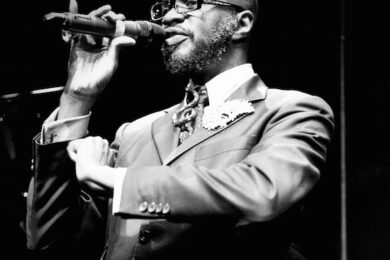6. Roberta FlackChapter Two

In Guyana we lived next door to an African American family. They dressed in strange clothes. They had strange names. One of them was an amazing singer. She sang ‘Summertime’ in another language. She told us it was Hebrew. She taught me the Hebrew alphabet.
The father had two wives and lots of children. They fascinated me. My mother didn’t like them, she didn’t approve of my interest in them. They were members of a North American cult called Hashabah Yisrael. They believed that they were the true Jews! My sister and I played with the children. Sometimes when the father was away we snuck into his den. He had intriguing records in his collection: lots of people with Afros and clothes like his and his wife’s, photographed on stages, at microphones, by pianos, on concrete streets, etc. A black and white close-up of a sidelong staring woman called Roberta Flack caught my eye. I had never heard music like her’s before. It was slow, deliberate; the music of threatening skies. It frightened me at times. It began with a "big, black, strong, sexy" preacher called Reverend Lee who was tormented by the Devil in the guise of a young woman. It concluded with a brother who died in "a war that he didn’t understand", while business went on as usual.
Roberta allowed each note its tenure. It was not music from someone who sought to encourage dancing or laughter or fun. It was serious. It went over my early teen head, but it planted a seed. I would find it again in Thieves – my first band – years later when I was old enough, aware enough and hurt enough to appreciate it.


